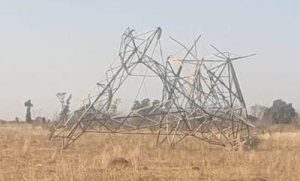
#OutToLunch Who is your mentor?
#OutToLunch Who is your mentor? By Denis Jjuuko It is usually a lonely treacherous journey for innovators especially those working in an industry that may not be established in a particular country. The lack of belief in an idea — the self-doubt that usually creeps in, wondering whether an idea would work. In Africa, the idea of venture capital is still new even though many people are investing in startups especially in the fintech sector. On a Saturday afternoon about a week ago, I was invited to listen to some innovators. All of them were from the informal sector with some of them having not even attended a single formal class in anything. What they lacked in formal education, they had it in ambition. I admired their courage given the grandeur of some ideas they are working on especially that they didn’t have financial resources or technical expertise to write home about. Uganda is actually full of these innovators. In Katwe and Kisenyi around Kampala, you will find lots of young people making all sorts of things — from wet welding machines, block making machines, popcorn machines, to automotive parts such as taxi seats, exhaust pipes and such other things. Many work in silos instead of working together. Many consider themselves the best and close the door to learning to improve their skills. Yet putting a product on market requires significant investments in research and development, developing the prototype, establishing the business case and then making the product itself. Many of our innovators in Katwe or Kisenyi don’t have resources for those stages. Many also don’t know whether those stages are necessary which many times leads to products that aren’t worth the printing cost of their price tag. A friend who is in the real estate sector wanted to expand his business. He thought he would be saving money by making the concrete blocks on site as he developed his properties. After reading a glossy ad in the classified section of a newspaper, he went to Katwe and bought a machine. It couldn’t make the blocks. The maker of the product didn’t want to hear of anything, for him the interest was only to make a sale. My friend is planning to sell it as scrap metal. I don’t think the innovator will stay in business for long, if other customers end up with similar experiences. In many countries that have been able to develop over the last few decades, their innovators have done so by partnering with others. In India, Maruti partnered with Japan’s Suzuki to develop the automotive industry. The Chinese have been doing the same, working with global brands to build their automotive industry. Now Chinese brands are increasingly dominating the market at least in China. Nike started by making its famous shoes in Japan and partnering with the Japanese as they built their capacity. For many years, they concentrated on shoes and only expanded into clothing and other areas later. So, the innovators need to ask themselves, what can they make on a product and then outsource the rest. To make a block making machine in Katwe, one doesn’t need to make everything. They can outsource some of the parts from others to make the final product. The automotive industry has mastered this. On average a car has 30,000 parts which are made by hundreds of companies stationed all over the world. So the guys in Katwe or Abayita Ababiri who are trying to make cars or those in Mbarara who want to make helicopters don’t necessarily need to make everything. They can buy parts from anywhere or most importantly make parts for others. They don’t have to do everything. These innovators also need business mentorship so they could holistically develop. If one can’t read or write like some of them in that innovators’ meeting, how will they sustainably develop their enterprises? In his autobiography, the late Bulayimu Muwanga Kibirige (BMK) talked about how he had to learn English when he realized that he needed to work with businesses and partners outside Uganda. He had to learn to read and communicate in English. The Science, Technology and Innovation secretariat which organized the meeting that I attended have started mentorship programs for these informal innovators and partnering them with others in the industry albeit with a bit of difficulty in getting such young people in the informal sector to appreciate systems. Skilling them and reorienting them is the right thing to do but this is needed across board. So if you are a young person, who is mentoring you? Anyway, have a great new year, won’t you? The writer is a communication and visibility consultant. djjuuko@gmail.com internet



